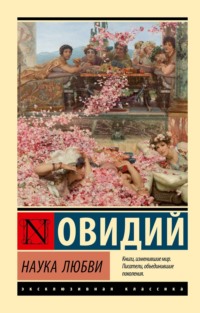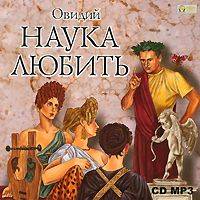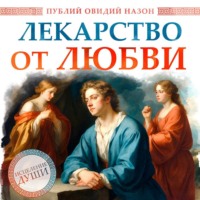 полная версия
полная версияThe Lovers Assistant; Or, New Art of Love
Signa peregrinis ubi sunt alterna columnis, Belides, & stricto barbarus ense pater.
It appears that the Number of Pillars was equalled by the Number of Statues. 5thly, The Temple of Venus, in which she was worshipped, together with Adonis, after the Assyrian manner. This Adonis was the Son of Cinyras King of Cyprus, begotten by him on his own Daughter Myrrha. The Fame of his Beauty, and the Passion which Venus bore towards him, are well known. 6thly, The Jewish Synagogues. The Jews having been encouraged by Julius Caesar, were very numerous in Rome at that time; and the Strangeness and Pomp of their Ceremonies inviting the Curiosity of the Roman Ladies, their Synagogues became famous Places of Intrigue. 7. The Temple of Isis. This Goddess, when a Woman, was called Io. She was the Daughter of Inachus; and being beloved by Jupiter, was by him, to preserve her from his Wife's Jealousy, turned into a Heifer, Juno suspecting the Fact, obtained this Heifer of her Husband, and set Argus to watch over her. Jupiter wanting to visit his old Friend, sent Mercury to kill Argus; in revenge of which, Juno ordered a Gad-Bee to sting the poor Heifer; which thereupon growing mad, ran to Egypt, where she was again restored to the Shape of a Woman, and married to Osiris. The Feast of Isis was celebrated in Rome ten Days together by the Women, and was a time of Carnival among them.
16
In Caesar's Forum, which was built on the Appian Way, was the Temple of Venus Genetrix.
17
Races were run at Rome in April in the Circus Maximus, which was likewise the Scene of many other public Exercises and Shews.
18
And when the Procession shall pass on with the Ivory Deities, do you applaud most the Statue of Lady Venus. Thus the Original. The Paraphrase preserves the same Sense, though in other Circumstances. These Statues were carried in Procession on many Occasions, particularly at the Maegalesian Games.
19
Adjusting her cushion.
20
Putting a Foot-stool under her.
21
The Original mentioned the Fights of the Gladiators. The Paraphrase comes as near as our Customs admit; for the British Ladies never attend to see Men kill one another in jest.
22
Augustus Caesar among other rich Shews, with which he entertained the People, exhibited to them a Sea-Fight in a Place dug on purpose near the banks of the Tyber. The Poet takes this occasion of introducing many Compliments to the Grandson of this Prince. We have done little more than altered Names in this Place; and as we are assured all here said is as properly applicable to the noble Person to whom we have transferred it, the learned Reader will admire that any Passage in an antient Author can be so apposite to the present Times, and the true English Reader will be no less delighted to see Ovid introduced as singing forth the Praises of the British Hero.
23
Parthia.
24
The Crassi.
25
Hercules.
26
Bacchus.
27
The Original here described the many Nations who are led Captives.
28
Here we have inverted the Original; but sure the Sense upholds us in so doing.
29
Baiae, a Place not far from Naples, famous for wholesome as well as pleasant Baths. It is described very largely by Diodorus; and Horace mentions it as the pleasantest Place in the World.
30
In the Original, the Temple of Diana in the Suburbs. It stood in a Grove not far from Rome. The next Line, Partaque per gladios, &c. alludes to a very singular Custom, by which the Priests of this Temple succeeded to each other, viz. by Conquest in single Combat, for which every Slave or Fugitive was admitted to contend, and the Victor was rewarded with the Priesthood. This Practice was renewed every Year, and was, as Strabo informs us, originally taken from the Scythians.
31
Byblis fell in love with her Brother Caunus; and upon his rejecting her Addresses, hanged herself. The Poets feign she was afterwards turned into a Fountain. See Metam. IX.
32
Myrrha was the Daughter of Cinyras, who being in love with her Father, took an Opportunity, while her Mother was employed in the Sacrifices to Ceres, to supply her Place. Her Father discovering the Imposture, ran after her with a drawn Sword to kill her: But she escaped by means of the Night, and fled into Sabeaea. She was changed into the Myrrh-Tree. The Story of which is in Metam. X. But though the Poets have subjoined Fable to this Fact, it is related by Pliny as a true History.
33
Pasiphaë was the Daughter of the Sun, married to Minos King of Crete. The Poets feign that being in love with a Bull, she employed Daedalus, a famous Artist, to make her a wooden Cow, into which she conveyed herself, in order to enjoy her monstrous Desires. From this unnatural Coition sprung the Minotaur, a Monster half Man and half Bull, which was enclosed in a Labyrinth, and afterward destroyed by Theseus.
34
The Original alludes to the Cretans, who were famous among the Antients for the Vice of lying.
35
Europa was the Daughter of Agenor King of Cydon, beloved by Jupiter, and by him run away with in the Shape of a Bull.
36
AErope was the Wife of Atreus. She committed Adultery with her Husband's Brother Thyestes, by whom she had two Sons, whom Atreus caused to be killed, and served up to his Brother's Table. To avoid this Sight, the Sun is said to have gone backward.
37
Scylla the Daughter of Nisus, King of the Megarensians, fell in love with Minos, while he was besieging her Father's City. She stole away her Father's Hair, on which the Fate of the City depended, and carried it to Minos; for which Fact she was rewarded by her Lover with Contempt only. She is by some said to have been changed into a Lark: But Ovid, who here seems to confound two Stories together, makes her Transformation to have been into a Rock, which lies between Sicily and Italy; where the dashing of the Waves against the Rock representing the Sound of the Barking of Dogs, gave rise to the Fable which is here hinted at.
38
Clytemnestra, the Wife of Agamemnon, who in the absence of her Husband committed Adultery with AEgysthus, and with him afterwards murdered Agamemnon, at his Return from Troy.
39
Creüsa was the Daughter of Creon King of Corinth, and second Wife to Jason; to whom Medea, enraged with Jason, who had forsaken her, sent a Casket in which Wild-Fire was inclosed, and by which she was burnt as soon [as] it was opened. This Medea afterwards, on account of the same Anger with Jason, tore to pieces her two Sons which she had bore to him.
40
This Phoenix having incensed his Father, by lying with a Woman who was beloved by the latter, fled to the Protection of Peleus the Father of Achilles, and was by bim [sic] Preceptor of that young Hero.
41
Hippolytus being beloved by his Stepmother Phaedra, and refusing to gratify her Desires, was by her falsely accused to his Father Theseus; upon which account he was obliged to fly, and the Chariot Horses being frighted by Sea-Calves, dashed the Chariot to-pieces, and him also.
42
Phineus King of Arcadia, having repudiated his Wife Cleopatra, married Harpalice; by whose Instigation he put out the Eyes of his Sons: for which he was afterwards punished by Divine Vengeance with the Loss of his own.
43
The Romans paid a Religious Regard to their Birth-Day, as appears from many Passages in their Poets. At this time they used to receive Presents from their Relations and Acquaintance. We have here given the Sense of the Original, only varying the Customs (Kalendae Martii.) Ovid advises the Lover to abstain from visiting his Mistress in the Kalends of March. At which time the Matronalia were celebrated to Juno Lucina, and the Husbands used to pray to that Goddess to protect the Chastity of their Wives. Horace likewise Lib. III. Ode 8. hints that this was not the proper Season for Batchelors to give a Loose to their Gaieties. (Sive erit ornatus Circus, &c.) A third Caution Ovid gives, is not to visit on those Days when the Wealth of the Roman Conquests were exposed to the Circus, in admiring which, as Mycellus observes, the Girls were too much taken up, to attend to the Desires of their Lovers. To say the truth, some Custom seems to be alluded to here, which is not sufficiently preserved from the Ruins of Antiquity.
44
Then the Pleiades are at hand. Then the Goat is merged in the Sea, viz. in the Month of October and November.
45
The Original points at the Day in which the Romans were overthrown by the Gauls on the Banks of the River Allia. This was the 15th of the Kalends of August. A. U. C. 363, and it was marked as a black Day in their Kalendar. As this Nation is too happy to produce any such Day, we have been obliged to give it a different Turn in our Paraphrase.
46
Cydippe was a beautiful virgin of the island of Delos. She was celebrating the Rites of Diana when she was seen by Acontius, who falling in love with her, and not daring openly to declare his Passion, contrived to drop an Apple at her Feet, in which were inclosed these two Lines:
I swear to you by the mystical Rites of Diana, That I will attend you as a Companion, and become your Bride.
Cydippe took up the Apple and read the Lines; by repeating which words they became her own; and she was ignorantly betrothed to her Lover: For it was a Law, that whatever any persons said in Diana's Temple, they were obliged to perform.
47
Ariadne was the Daughter of Minos King of Crete. She fell in Love with Theseus, and with a Clew of Thread helped him out of the Labyrinth into which he went to kill the Minotaur. He afterwards basely deserted the poor Lady, of which our Poet will presently tell the Story.
48
Silenus was the Pedagogue of Bacchus, and his Foster-Father: He was likewise his Companion on all Occasions; and is often introduced in his drunken Mood by our Poet.
49
At this Wedding Eurytion the Centaur getting drunk, attempted to ravish Hippodamia the Bride of Pyrithous, but Theseus knocked his Brains out with a Bowl. Upon this a Battle ensued between the Centaurs and the Lapithae, who defending the Cause of their Prince Pyrithous, destroyed almost all the Centaurs. Horace Lib. I. Ode 18. mentions this Story likewise, as a Caution to Men not to be quarrelsome in their Cups.
50
Here and in many other Places, we have been obliged to supply that Connection, which is greatly wanting in the Original.
51
Phoebe and Ilaira were two pretty Girls, the Daughters of Leucippus, and by their Father betrothed to two Brothers Idas and Lynceus; but before the Celebration of their Nuptials, were ravished by Castor and Pollux. This ended in the Death of Castor, by the Hands of Lynceus; and of Lynceus, by Pollux, whose Death while Idas was attempting to revenge, he was struck dead by Thunder at the Feet of Pollux.
52
Orion the Theban was in Love with Merope the Daughter of AEnopian; but who this Lyrice was, is not so plain, no Mention being made of her in any other Place.
53
Daphnis was the Son of Mercury; for his Love for this Naïs, we have here Ovid's Authority.









